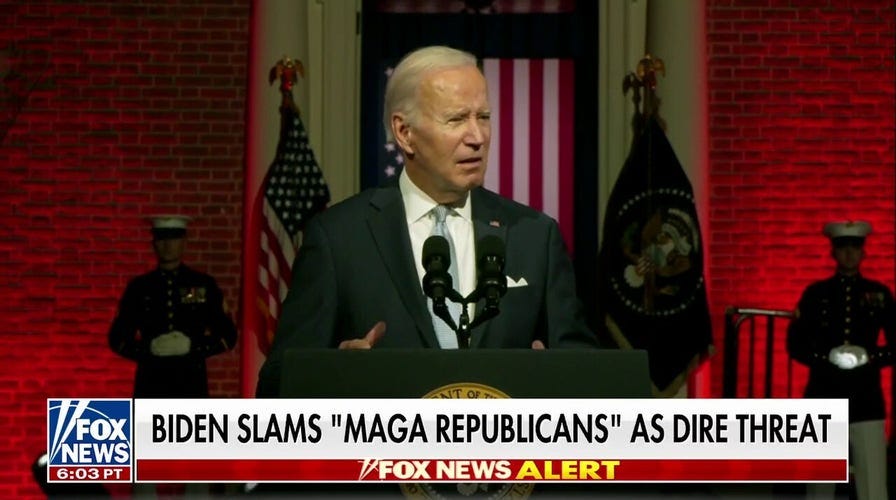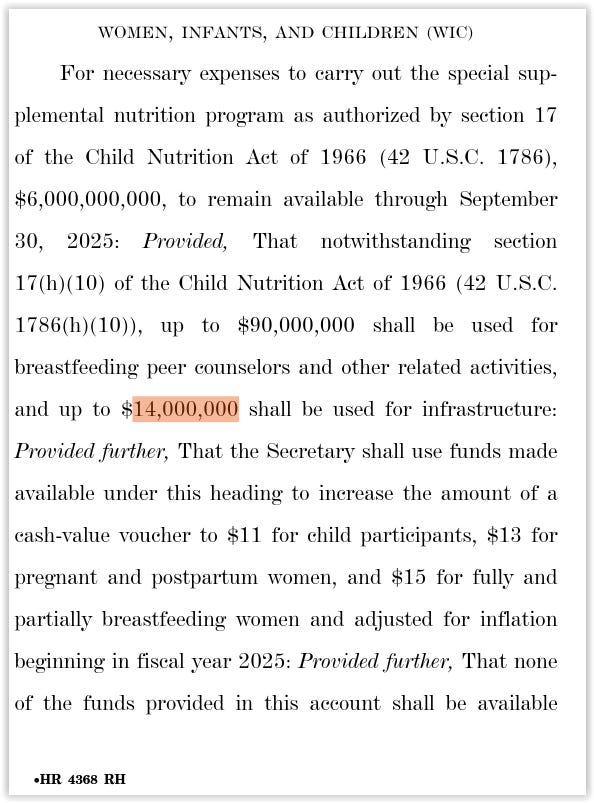By Breeauna Sagdal, Policy Analyst for America Mission
Associated X-Space held October 5th - click HERE to listen and access chat area.
WASHINGTON D.C.- As both sides of the aisle clash over budgetary priorities, a massive fight is anticipated over the Rural Development budget which will determine key appropriations to this year's "Farm Bill."
What's being referred to as the "Farm Bill" by the media, and various members of Congress, is actually an Omnibus slate of policies proposing amendments to everything from the Stockyard and Packers Act of 1921, to adding Reparations as an entitlement program.
The biggest issue at stake, however, are the vast adjustments prioritized to "mitigate climate change." The scope of proposals have the ability to create a new digital system of authoritarian neo-feudalism, with the woke climate compliant being the titled nobility class, yet owning nothing.
This Omnibus policy package applies to twelve titles, spanning various agencies;
Title 1: Commodities. Covers price setting and directives to the futures market for widely-produced and traded non-perishable crops, like corn, soybeans, wheat, and rice – as well as dairy and sugar. After Executive Order 14008 was signed by President Biden, the Commodities market began to restructure under a carbon credit index.
Title 2: Conservation. The Conservation title may see an expansion to programs like the CRP, under which 25 million acres of farmlands have been locked into non-farming carbon sequestration agreements with the federal government, in turn for a small annual stipend. Title II also includes the 30x30 program, directing states to sequester 30% of private and public lands for 30 years. This program is expected to grow to 50x50 (50% of each state for 50 years) by 2030.
Title 3: Trade. Covers food export subsidy programs, imports, and international food aid programs. This includes efforts to disclose country of origin labeling, as the countries we import meat from do not have the same regulatory burden that American livestock producers do.
Title 4: Nutrition. Covers the Supplemental Nutrition Assistance Program [SNAP] (formerly known as food stamps) as well as a variety of smaller nutrition programs to help low-income Americans afford food for their families.
Title 5: Credit. Covers federal loan programs for farmers registered with the USDA. Similar to student loans, lending guidelines are industry specific and regulated by the federal government. Current talks revolve around ESG scores, and the implementation of lending based upon compliance, rather than ability to repay.
Title 6: Rural Development. The Rural Development title covers programs that help foster rural economic growth through rural business and community development (including farm businesses) as well as rural housing, and infrastructure.
Title 7: Research, Extension, and Related Matters. The Research title covers farm and food research, education, and extension programs from federal labs and state university-affiliated research, aimed at making farming a science. Currently, Congress is proposing a study between the Department of Energy and the USDA on biomass fuels, and feedstock fuels typically referenced as ethanol.
Title 8: Forestry. The Forestry title covers forest-specific conservation programs for BLM managed lands. At one time, this included controlled burns, grazing contracts, and stewardship agreements between ranchers and the federal government. Title 8 budget cuts, and environmental litigation have slowly replaced human stewardship with mandated no-go zones, which have increased fuels for seasonal fires.
Title 9: Energy. The Energy title covers programs that encourage growing and processing crops for biofuels, in addition to helping farmers, ranchers and business owners install renewable energy systems, and support research related to energy.
Title 10: Horticulture. The Horticulture title covers farmers market and local food programs, funding for research and infrastructure for fruits, vegetables and other horticultural crops, and organic farming and certification programs.
Title 11: Crop Insurance. The Crop Insurance title provides premium assistance to farmers and subsidies to the private crop insurance companies who provide federal crop insurance to insure against losses in yield, crop revenue, or whole farm revenue. The title also provides USDA’s Risk Management Agency (RMA) with the authority to research, develop, and modify insurance policies. Federal funding to Oregon State University helped to launch a pilot last year to reassess properties in high-risk areas for fire, which may impact access to insurance availability.
Title 12: Miscellaneous. The Miscellaneous title is a bit of a catch-all. The current title brings together six advocacy and outreach areas including; beginning, socially disadvantaged, and veteran farmers and ranchers, agricultural labor safety and workforce development, and livestock health. Under Title 12, the USDA is discussing a mandatory electronic ID (EID) chip to be placed in cattle and bison herds. Part of a new effort to track and maintain compliance, the chip program has been compared to social credit for cattle. Policies like the "Justice For Black Farmers" reparations act, would also receive funding via Title XII, if passed.
From setting new standards in the commodities market through a carbon credit index, to expanding land conservation programs like CRP and 30x30, this "Farm Bill" has the potential to completely reshape rural America and America's food supply as we know it.
The U.S is staring down the barrel of new regulatory and infrastructure proposals that would make the Dutch farmer issue look like child's play. Yet, our media is hyper focused on one tiny segment of this Omnibus and using a twisted narrative to frame opposition as "MAGA extremism."
SNAP- at this point, most of America has likely heard how the big bad Republicans are trying to cut social services for the needy by reducing WIC and SNAP. Not a single article cites a source from the budget, outlines how, where, or by how much, yet those who want to believe, have bought this narrative without a second thought.
Ironically, the Rural Development budget is fixed at 5 percent in either direction, meaning that no line item under Rural Development like WIC or SNAP, can receive an increase or decrease of more than 5 percent in any Fiscal Year.
Last year, however, under Speaker Nancy Pelosi, the SNAP budget that normally operates at 6 billion per year, received a 278 million dollar boost in additional one-time funding, "due to inflation."
Even though the cost estimate for last year was still 6 billion;
"Appropriations, 2021.................................... $6,000,000,000 Budget estimate, 2022................................... 6,000,000,000 Committee recommendation................................ 6,278,000,000"
When those additional funds were unused, and the SNAP program remained under budget, the appropriations committee argued the budget should return to the regular operating cost of 6 billion, rather than continue to be funded at the pandemic boosted 6.278 billion.
Without sharing these important details, publications such as the Washington Post quickly co-opted the abortion debate, running op-eds that accused Republicans of cutting WIC entirely, and not caring about babies after they're born. While wildly inaccurate, these opinion pieces were quickly shared by the Clintons, Obamas, and political influencers hoping to score election points for their side.
The reality is that WIC, specifically, received an increase in funding. In fact, WIC infrastructure was actually increased from 13.6 million last year to 14 million in the current "Farm Bill" budget proposal H.R 4368. Increases to WIC also include individual vouchers for children, postpartum moms, and breastfeeding women.
"The Committee recommendation fully funds estimated WIC
participation in fiscal year 2022. The Committee provides
$90,000,000 for breastfeeding support initiatives and
$13,600,000 for infrastructure."
The fact is, this Agricultural Omnibus will redefine rural America as we know it. Yet, the media and select political leaders would have you believe MAGA republican extremists are trying to take away benefits, rather than what they're actually doing….Fighting for farmers and ranchers to continue growing the food that feeds our entire nation, securing our food supply, and fighting back on insane climate policies that threaten to create a digital chattel system based on compliance to a neo-feudalist federal government.
The 2 percent of us left, who are still growing America's food supply, desperately need your help. If you care about food security, please follow these bills, the budgetary process, and call upon your state's representatives in Congress to stand up for America's future.
Make sure to follow AmericaMission_ on X, subscribe to our SubStack, and
ring the tip jar for America Mission's policy analyst Breeauna Sagdal
(Breeauna9 on Twitter), if you have appreciated this analysis.
Breeauna Sagdal is a former policy analyst who turned a love of the legislative process into a career in policy journalism.
“Passionate about local control, Sagdal has cultivated a readership based upon trusted reporting of state and local policies. With a firm belief that the "inside baseball," helps to empower informed voters, Sagdal launched The Dakota Leader in January of 2022 to cover each bill of South Dakota's 97th Legislative Session. Since then, The Dakota Leader has laid the foundation for transparency in government with original source reporting, while giving a voice to those who have been silenced by today's media apparatus.
The Dakota Leader can be found at the DakotaLeader.com.”






